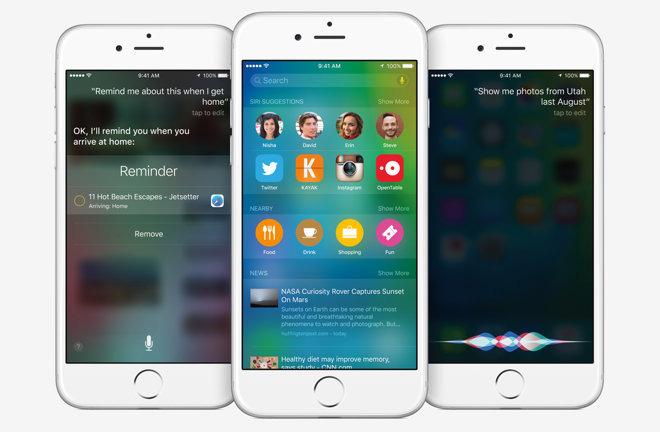Following the release of iOS 9.0.2 last week, Apple on Thursday stopped signing code for iOS 9.1 on compatible devices, prohibiting users from downgrading to the older operating system version.
As has become routine, Apple stopped signing for iOS 9.0.2 to ensure device owners are running the most up to date, stable code available, which translates to iOS 9.1.
Aside from stability improvements and fixes for bugs discovered in iOS 9.0.2, the latest iOS update released last week included a number of additional features. Owners of Apple's new iPhone 6s and 6s Plus, for example, receive a Live Photos enhancement that automatically senses when the handset is being raised or lowered to avoid recording unwanted movement. Also included is a list of more than 150 new emoji with support for Unicode 7.0 and 8.0 characters.
By ceasing iOS 9.0.2 code signing, Apple is effectively blocking users from taking advantage of a recent Pangu jailbreak release. The exploit used by Pangu's installer was patched in iOS 9.2.
Apple continues to forge ahead on its next point update and released a beta version of iOS 9.2 to developers this week that was subsequently followed by a public beta build today.
 AppleInsider Staff
AppleInsider Staff








 Charles Martin
Charles Martin
 Malcolm Owen
Malcolm Owen
 William Gallagher
William Gallagher

 Christine McKee
Christine McKee
 Wesley Hilliard
Wesley Hilliard

 Andrew Orr
Andrew Orr








29 Comments
You need to edit the sub-headline, which currently reads: "Following the release of iOS 9.0.2 last week, Apple on Thursday stopped signing code for iOS 9.1 on compatible devices, prohibiting users from downgrading to the older operating system version." It should read: "Following the release of iOS 9.1 last week, Apple on Thursday stopped signing code for iOS 9.0.2 on compatible devices, prohibiting users from downgrading to the older operating system version." I.e., they stopped signing the OLD version, when the NEW one was released. Not the other way around.
Make up your mind about the versions, AI. Proof reading is a great thing, btw.
I really wish Apple would stop doing this. Sometimes there's a really good reason why someone wants to go back to a previous version. Updates very often break something that was previously working fine, or take away a feature that you really liked. I can go back several versions in OS X, I should be able to do the same in iOS.
I really wish Apple would stop doing this. Sometimes there's a really good reason why someone wants to go back to a previous version. Updates very often break something that was previously working fine, or take away a feature that you really liked. I can go back several versions in OS X, I should be able to do the same in iOS.
Cry me a river buddy. Keeping as many people as possible on the latest version makes iOS an extremely difficult moving target to attack. Allowing a bunch of people to easily run obsolete versions with known security flaws would only attract hackers to the iOS platform and increase the chance of them stumbling across something that also affects the latest version. Not good.
[quote name="proline" url="/t/189840/apple-ceases-ios-9-0-2-code-signing-after-ios-9-1-release#post_2798564"] Cry me a river buddy. Keeping as many people as possible on the latest version makes iOS an extremely difficult moving target to attack. Allowing a bunch of people to easily run obsolete versions with known security flaws would only attract hackers to the iOS platform and increase the chance of them stumbling across something that also affects the latest version. Not good. [/quote] Please. Mac users have happily and safely been able to do this for decades. OLD versions of OS X still get security updates. Even classic Mac OS got one recently. Old versions of iOS still get security updates too. If anyone could do it, Apple can. Besides that, Apple does already "allow a bunch of people to easily run obsolete versions". Those would be the millions of people who don't even bother to update to the latest version. Because that's the flip side: if Apple won't allow people to go back when they update, concerned people can just pass on the updates when they become available. Surely Apple doesn't want people to make THAT a habit?